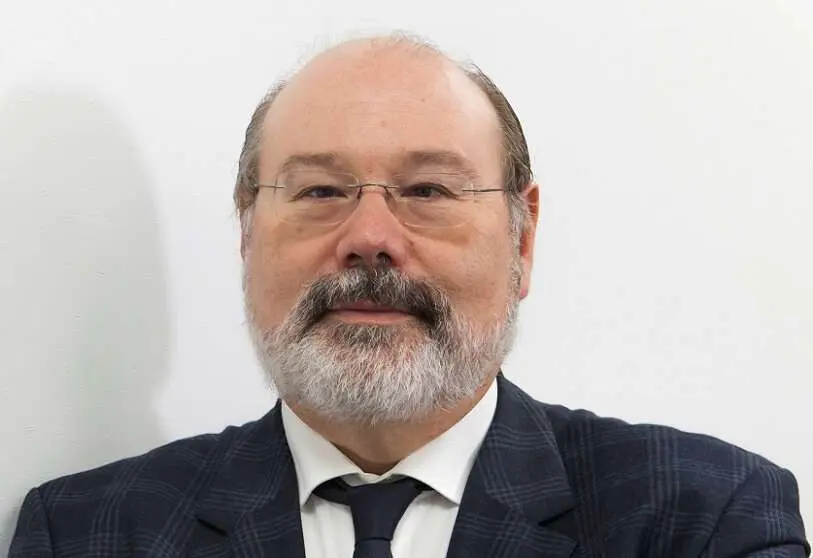Emilio González: "Economic sanctions have never served to stop a conflict"

In the latest edition of Onda Madrid's radio programme "De cara al mundo", we had the participation of Emilio González, Professor of Economics at Comillas Pontifical University, who spoke to us about the economic sanctions imposed by Europe on Russia and how Europe should carry out the energy transition.
Do you think the economic sanctions hurt Putin's Russia or do they hurt us more?
Well, economic sanctions hurt Russia and we can see that when Putin keeps calling for the sanctions to be lifted, but they are not enough to stop the war. We Europeans continue to buy oil and as a consequence we continue to finance the war, probably better than sanctions, stronger tariffs on Russian oil and gas imports should be put in place, as it would work much better. Secondly, that Scholz, the German Chancellor, unblock the delivery of arms to Ukraine in a real way and, finally, start considering sending US soldiers from NATO to start ending the war because sanctions have never done anything to stop a conflict.
Should we worry about how the repercussions will affect us or should we make an effort because our social values are at stake and therefore, we should pull together?
We have to make sacrifices for two reasons, firstly, because the differences between Putin and Hitler are not too great, we are probably facing the 21st century version of Hitler, so if what we want is a world of freedom, peace and human rights, we obviously have to get involved in order to stop this madness and stop Putin. On the other hand, although we in Spain do not get involved in the military issue, we do have to make sacrifices because we cannot always protect everyone, that is a fact of life, but if we try to compensate for the consequences of inflation with measures such as higher pensions or wage rises, all we will do is accelerate inflation even more.
We Spaniards have already experienced a very similar situation a few years ago...
Indeed, in Spain we already have a historical experience, when we delayed the response to the 1973 oil crisis and prices and salaries were adapted to the rise in oil prices; the only thing we achieved was an enormous economic crisis that began to be resolved thanks to the "Moncloa Pacts" and the entry into the European Union. The consequences of this are significant, therefore, faced with a situation of rising fuel and food prices, we must accept it and we will have to take measures, but not compensation measures so that people can continue to consume petrol, but measures of acceptance. I am struck by the contradiction in the policies of the government, which wants to reduce petrol consumption and decarbonise energy, and, on the other hand, what it is doing is subsidising petrol consumption, it is a contradiction in terms. In Germany, public transport has been subsidised as an incentive for people to leave their cars at home and travel by public transport, which, as well as being less polluting, has the effect on German citizens' pockets of reducing the rise in petrol prices and having a smaller impact on German domestic consumption and the German economy.
The energy issue has caught us Europeans with our "pants off". Should Europe have a common energy policy given its dependence on foreign energy?
The problem with a common energy policy is that it does not guarantee common sense. Energy policy in the 21st century must be based on three pillars: guarantee of supply, which is not happening at the moment; affordable prices, with a commitment to renewable energies, although with the current state of technology this is not possible; and respect for the environment, which in this case renewables do meet this parameter, but we must not forget that the European Commission asked for natural gas and nuclear energy to be included among renewable energies and therefore eligible for aid for the energy transition, and the Spanish government's first response was "no".
This is sad considering that Spain has 50% of the uranium reserves of the European Union...
That's right, we could have nuclear energy and we would therefore avoid paying such a high price for electricity, in the interview we are talking about petrol, but electricity is still sky high because we are dismantling nuclear power stations. In France, electricity prices have hardly gone up because 37% of the electricity they consume comes from nuclear power plants. Today nuclear power stations are much safer, the problem of nuclear waste is practically solved because 99% of it can be reused, so why not nuclear energy, as the European Commission has said, and I insist that it is not so much a question of common policy versus national policies, but of accepting reality. The United Kingdom is already reopening nuclear power stations, there are other countries that are already reconfiguring their energy strategy to reopen nuclear power stations and in Germany there is already pressure from one part of the political spectrum to reopen nuclear power stations again. We need to leave ideology aside and be practical, especially as there is no single path to the energy transition.








